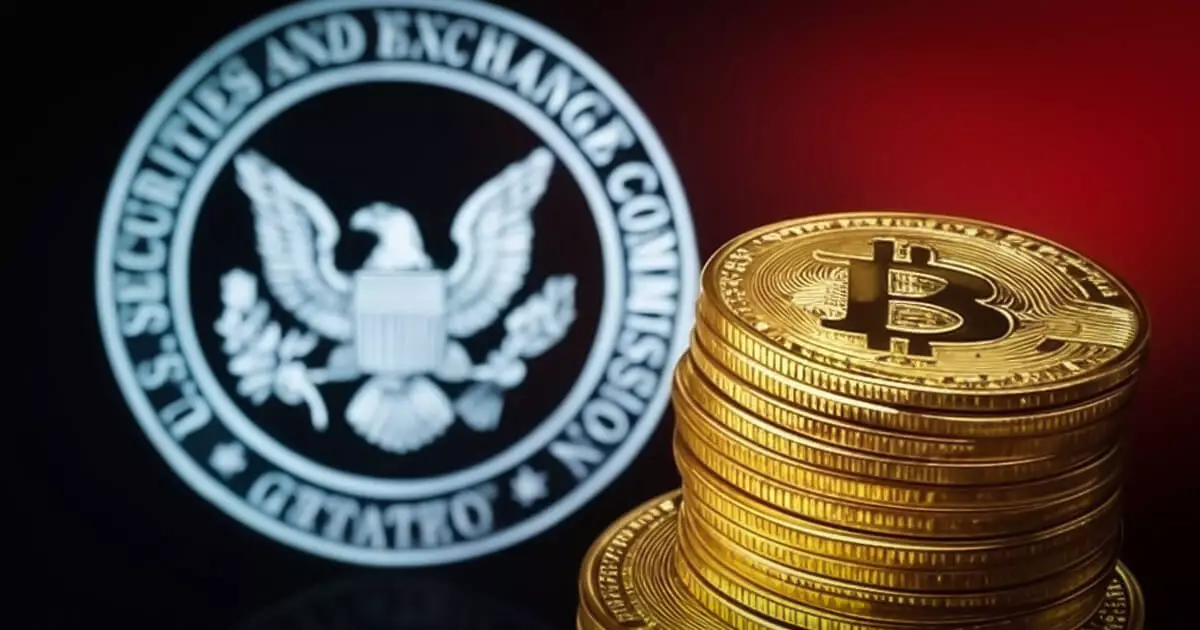The landscape of cryptocurrency regulation in the United States stands on the brink of transformation as President-elect Donald Trump prepares to assume office. This anticipated shift is not only a reflection of the new administration’s approach to economic policy but also exposes underlying tensions within regulatory frameworks, particularly concerning the U.S. Securities and Exchange Commission (SEC). Recent reports indicate that significant changes could be in store for how the SEC interprets and enforces regulations around cryptocurrencies, a move that could have far-reaching implications for the entire industry.
As Trump navigates the political waters, the SEC—an agency tasked with maintaining fair and efficient markets—appears set for a recalibration. Insiders suggest that prominent commissioners like Hester Peirce and Mark Uyeda may initiate transformative measures that could redefine how regulatory oversight applies to the crypto sector. These officials have garnered a reputation for adopting a more lenient approach towards cryptocurrency dealings, promoting a framework that differentiates between digital assets that function as securities and those that do not.
Peirce, often referred to as “Crypto Mom” for her advocacy within the commission, alongside Uyeda, is purportedly seeking to clarify the nebulous criteria that determine when a cryptocurrency is classified as a security. The impending changes are crucial since they will likely affect the ongoing legal battles that several prominent cryptocurrency platforms, including Coinbase and Kraken, are currently embroiled in. The SEC’s current trajectory under the leadership of Gary Gensler has faced criticism for being overly restrictive, presenting compliance challenges for firms looking to innovate in the crypto space.
The expected appointment of Paul Atkins, set to fill the SEC chair upon Senate confirmation, signifies a conscientious shift towards a more crypto-friendly regulatory environment. Atkins, known for his advocacy for reduced regulatory burdens, brings a background that aligns well with the aspirations of the burgeoning crypto industry. As former co-chairman of the Digital Chamber’s Token Alliance, his influence could pave the way for regulations that encourage market participation rather than stifle it.
One of the discussions on the table includes reevaluating the accounting guidelines that critics argue have disincentivized businesses from managing cryptocurrencies on behalf of their clients. If the new leadership constructs a more accommodating regulatory environment, it may lessen the hesitations of financial institutions and other corporations to engage with cryptocurrencies actively.
While the prospect of easing regulatory pressures is appealing to many in the cryptocurrency community, the journey towards establishing new policies will not be a straightforward one. Achieving consensus among SEC members, both on new framework provisions and potential enforcement actions, may take time and could encounter various hurdles along the way. Legal complexities, particularly regarding the definition of securities, are likely to remain a contentious issue, and experts warn that the courts could remain a challenging battleground.
The suggestion of halting ongoing enforcement actions—or reevaluating cases that do not include allegations of fraud—could be perceived as an unprecedented move with serious implications for the SEC’s credibility. Philip Moustakis, a former SEC attorney, highlights that such actions could undermine the agency’s long-term authority and pose significant risks to investor confidence.
Moreover, the potential for restarting settlement negotiations reflects an uncertain future for many cryptocurrency firms that have previously found themselves at odds with regulatory standards. Legal experts suggest that the SEC may face pushback from the courts regarding any hasty moves to resolve complication-ridden cases, further complicating the landscape.
The upcoming changes within the SEC, amid a shift in presidential administration, could mark the dawn of a new regulatory era for cryptocurrencies. With commissioners likely to pursue clearer guidelines and a more accommodating regulatory stance, the landscape might finally reshape in ways that promote innovation while still protecting investors. However, the balance between regulation and growth will be delicate, as political motives intertwine with economic consequences. As stakeholders brace for these changes, the actions of the SEC will undoubtedly play a crucial role in determining the future trajectory of the cryptocurrency market in the United States. The evolving narrative will require careful navigation of regulatory waters that, for many, remain uncharted territory.

